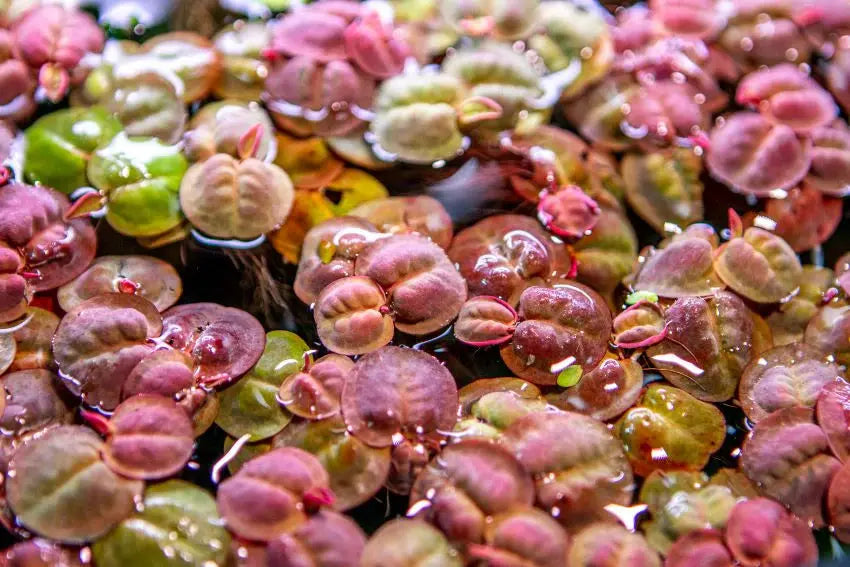Red Root Floater
Red Root Floater
Out of stock
Couldn't load pickup availability
The Red Root Floater (Phyllanthus fluitans) is a small, floating aquatic plant that’s popular in freshwater aquariums due to its vibrant color and ease of care. Here's what you need to know about it:
Key Features of Red Root Floater:
-
Appearance: It has small, round to oval-shaped leaves that are green with a reddish tinge, especially when exposed to bright light. The roots are long and red, which gives the plant its distinctive look.
-
Growth: It floats on the water surface and tends to spread quickly, forming a dense mat if conditions are right. This can provide some shade and help reduce algae growth in the tank.
-
Lighting: The plant thrives under medium to bright light. The more light it gets, the more intense its red coloration becomes.
-
Care: Red Root Floater is relatively easy to care for. It prefers warmer water (72-82°F or 22-28°C) and a slightly acidic to neutral pH range (6.0 to 7.5). It’s also fairly tolerant of different water conditions but can be sensitive to sudden changes in water parameters.
-
Water Quality: It helps improve water quality by absorbing nutrients, especially excess nitrates, making it a good choice for maintaining a balanced tank environment.
-
Propagation: The plant propagates quickly by producing new plantlets that float alongside the parent plant. These can be separated and planted in new areas of the tank.
Uses in Aquariums:
-
Aesthetic: Red Root Floater adds a pop of color to the surface of the tank, providing a contrast to other plants and creating a natural look.
-
Shade: Its dense mats can help provide shade for lower-growing plants or fish that need a little refuge from the light.
-
Fish: It’s a great addition for small fish or shrimp, offering them a place to hide and explore.
Potential Issues:
-
Floating: As a floating plant, it can sometimes block light for plants beneath it, so it’s important to trim it regularly to maintain balance in the tank.
-
Temperature Sensitivity: It’s not as hardy in colder water, so it’s best suited for aquariums that maintain warmer temperatures.



